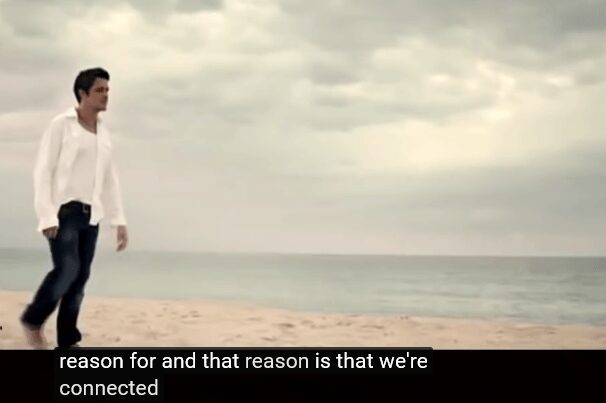Sensual touch to life: the core human value at the age of uncertainty

We live in the age of uncertainty and change, when many of the human values and ways of doing things are inadequate. The fact that human life has undeniable value. When we speak of human life as valuable, we refer to humans in a way that differentiate them from other animals and that is what philosophers are interested in. Albert Einstein, one of the world greatest scientists upholds that man has ‘the aggressive instinct and lust to hate and destroy his rivals. The ugly event of man’s inhumanity to man has manifested itself in this 21st century in form of corruption, juvenile delinquencies, political crises, religious violence, terrorism and wars across the globe. Sophiscated weapons are used to perfect destruction of life and property.
Let us throw our minds back to US bombardment and devastation of Nagasaki, the operation that killed 70,000 people, the carnage and the wanton destruction of lives and property by terrorist at the World Trade Centre, the Pentagon which was responsible for the death of more than 6,000 men, women, and children, Timothy Mcvey’s blowing up of a large building in Oklahoma city which killed so many grownups as they worked and innocent children as they played, the wound afflicted by those who conducted experiment that brought AIDS which is devastating human beings and causing humanity pains and agony, the extermination of six million Jews in Germany-Nazi Holocaust, the interment of 120000 people of Japanese ancestry during World War ll. The people in Afghanistan, Iraq and Syria are subjected to constant bombings and lack of adequate medical supplies. In the Middle East, people are losing their lives, their homes, their vineyards and places of business on daily bases, we cannot “commit the memory of the Biafran genocide into oblivion, where a million lgbo and thousands of other ethnic groups that made up Biafra were butchered in the name of patriotism”, in short, we cannot enumerate all here for there is endless list of tragedies resulting from the programmes of war, genocide, deprivation and poverty.
This is possible, because of the explorations and advancements in modem science have contributed in the development of dangerous nuclear and chemical weapons of mass destruction without regard to the value of human life. Now the world is living in fear of inherent danger. The height of it is that the radioactive particles in atomic and hydrogen bombs could end human life.
It is on the strength of this that Darryl Hewlett asserts: The long-term and widespread effects of nuclear radiation “were…., confirmed ‘when, at 1:23 am. on 26 April, 1986, a large explosion ripped the roof off the number four power unit of the Chernobyl nuclear complex in the former Soviet Union’. The devastation caused by this explosion of an operating nuclear plant shook the world… nuclear radiation was carried on the prevailing winds across several national borders resulting in large numbers of animals having to be destroyed and humans well outside the initial blast area suffering varying degrees of radiation-induced illness”.
I am of the view that this globalised age is the bloodiest in recent history Philosophy calls us to honest reflection on the remote and actual causes of the sadness, the pains, and injustices of our lives and our world. There is a philosophical demand to seek for a solution to all atrocities of our glob. Kant for instance, gave account of how global community can end wars. His main concern indeed, in part of his political Philosophy, is to find a way to prevent states from going to war with each other, as a philosopher, he looked upon war with utter repugnance. And so, under the heading of international right he proposed that states should form a league or association with each other, under whose terms they would renounce the use of military force within the association and establish diplomatic institutions that could be used to settle disputes between them.
Kant makes it clear, first, that membership in the league is voluntary and states can decide to leave at any time, and, second, that the purpose of the league is specifically to prevent war: there is no transfer of governmental powers to a federal body. It’s true that there are places in his writing where he seems to think that only something like a universal state could fully achieve the aim of perpetual peace. But this is equally firmly rejected not only on the ground that it would turn into a ‘soulless despotism’, but also because it denies the moral personality of each independent state.
To decide wisely and act accordingly and consistently too, we need to discover values and the meanings of things. Life challenges us with choices and to act on the basis of some scale of values. We have to decide questions of truth and falsity, of beauty and ugliness, of right and wrong etc. the search for standards and goals is an important part of the task. Just as values form a horizon in our lives, so everybody, in its search for truth, opens a range or hierarchy of values against which we must evaluate the quality of our lives, the sensibleness of an issue or of a project.
The outstanding value of truth is that, it lights up other values, including that of justice. In the light of truth, the world is not just a world of facts and figures, but one imbued with priorities, a sense of importance and purposes, Thus, philosophy reminds our global society of the supreme utility of those things which do not deal with means but with ends. Men do not live only by bread, sex, drinks and technological discoveries; above all, they live by values and realities which are beyond time and are worth knowing for their own sake.




